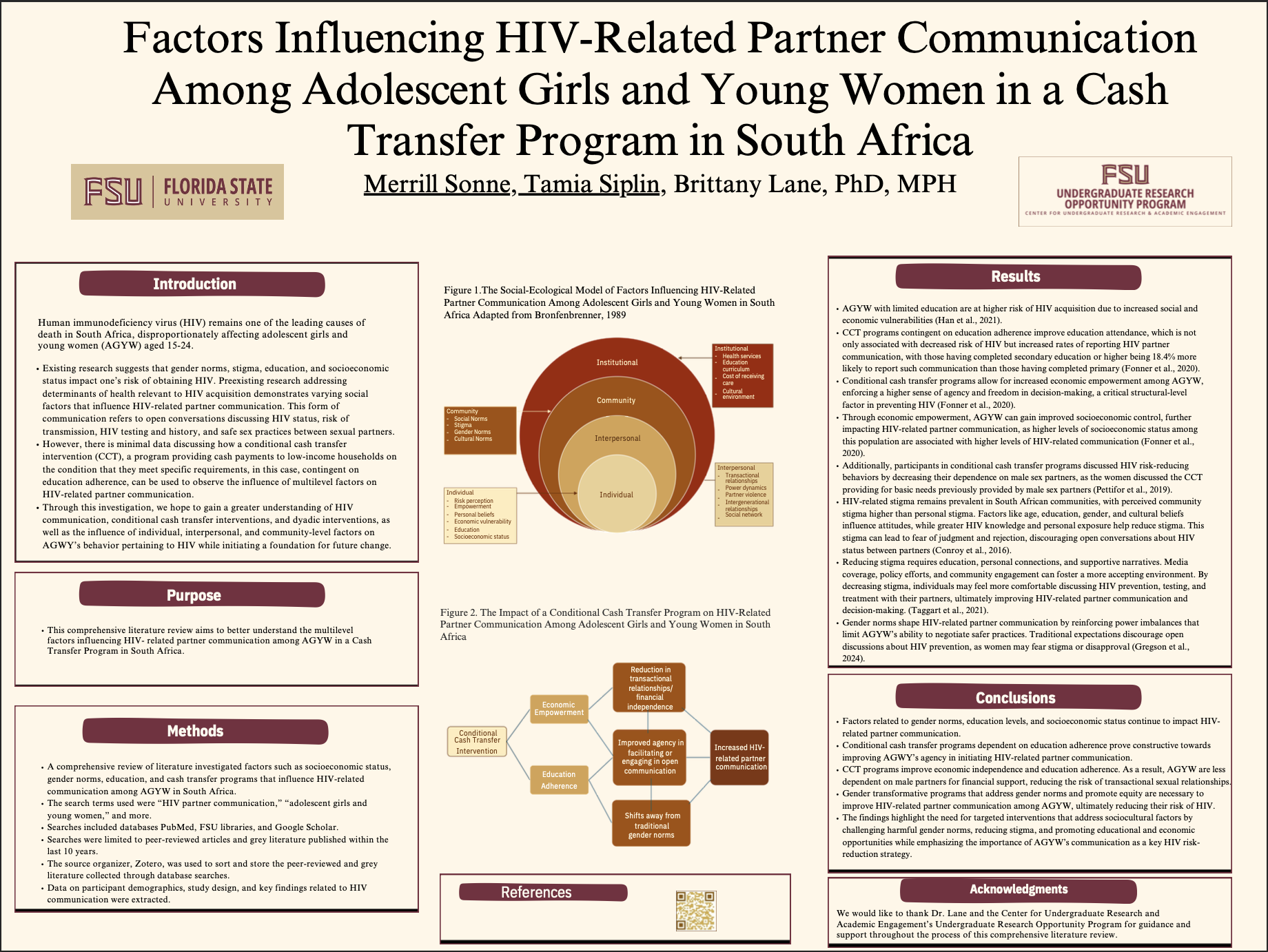Research Symposium
25th annual Undergraduate Research Symposium, April 1, 2025
Tamia Siplin Poster Session 3: 1:45 pm - 2:45 pm/ Poster #239

BIO
My name is Tamia Siplin, and I am a sophomore majoring in Biological Sciences on a pre-med track. I’m originally from Parkland, Florida, and I aspire to become a trauma surgeon, driven by my passion for medicine and patient care. My research interests include HIV-related partner communication. Beyond academics, I am actively involved in several organizations, including the Student Government Association's Union Board and USSTRIDE. As a U-STAR mentor within USSTRIDE, I provide academic support and mentorship to other students. Additionally, I have volunteered in the Post-Op Care Unit and Bixler Emergency Center at TMH, reinforcing my dedication to community service. With a strong commitment to leadership and academic excellence, I continue to seek opportunities that will prepare me for a future in surgery and medical research.
Factors Influencing HIV-Related Partner Communication Among Adolescent Girls and Young Women in a Cash Transfer Program in South Africa
Authors: Tamia Siplin, Dr.Brittany LaneStudent Major: Biological Sciences
Mentor: Dr.Brittany Lane
Mentor's Department: Center of Population Sciences for Health Empowerment Mentor's College: Florida State University Co-Presenters: Merrill Sonne
Abstract
This research examines the sociocultural factors that impact HIV-related partner communication among adolescent girls and young women (AGYW) aged 15-24 in South Africa while focusing on cash transfer programs and education in improving HIV-related partner communication. Specifically, this study addresses how these determinants influence discussion regarding HIV testing, prevention, and treatment among different partner types (intergenerational, transactional, and committed relationships). Understanding the roles of these factors is paramount to identifying barriers and facilitators of open communication between sexual partners. Assessments of peer-reviewed and grey literature published or reported within the past ten years were conducted using key search terms such as “HIV partner communication,” “AGYW,” and others. PUBMED, Google Scholar and FSU libraries were used to analyze studies examining HIV communication, conditional cash transfer interventions (CCT), dyadic interventions, and the influence of individual, interpersonal, and community-level factors on HIV-related AGYW behavior. The findings suggest that lower education level, parental status, the presence of rigid gender norms (e.g., male dominance in decision-making), and HIV-related stigma play a significant role in AGYW’s communication about HIV with their partners.
Cash transfer programs appear to facilitate increased communication by improving AGYW’s education attendance and economic independence. These findings highlight the need for targeted interventions that address sociocultural factors by challenging harmful gender norms, reducing stigma, and promoting educational and economic opportunities while emphasizing the importance of AGYW’s communication as a key HIV risk-reduction strategy. Furthermore, these findings suggest the need to promote education and economic opportunities among AGYW to improve HIV-related partner communication.
Keywords: HIV, South Africa, Girls


